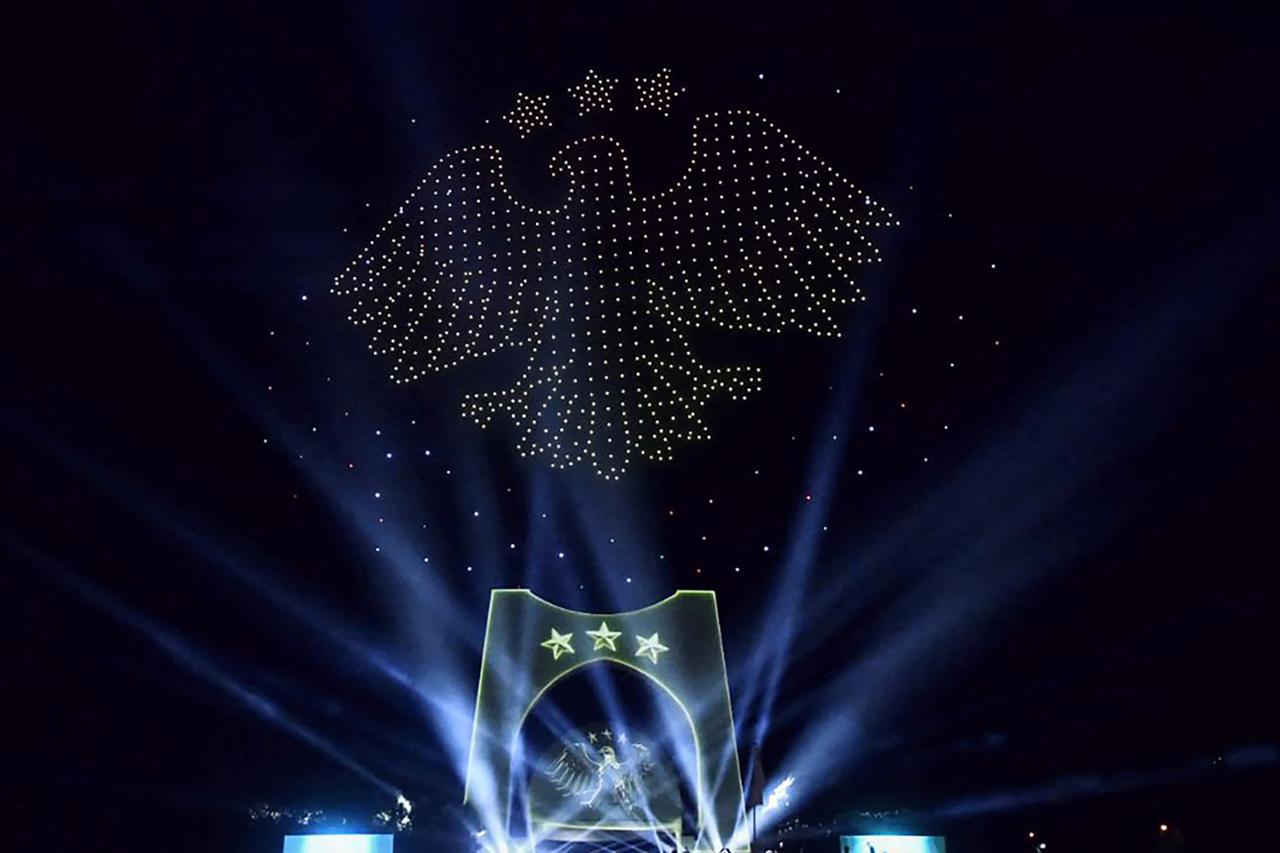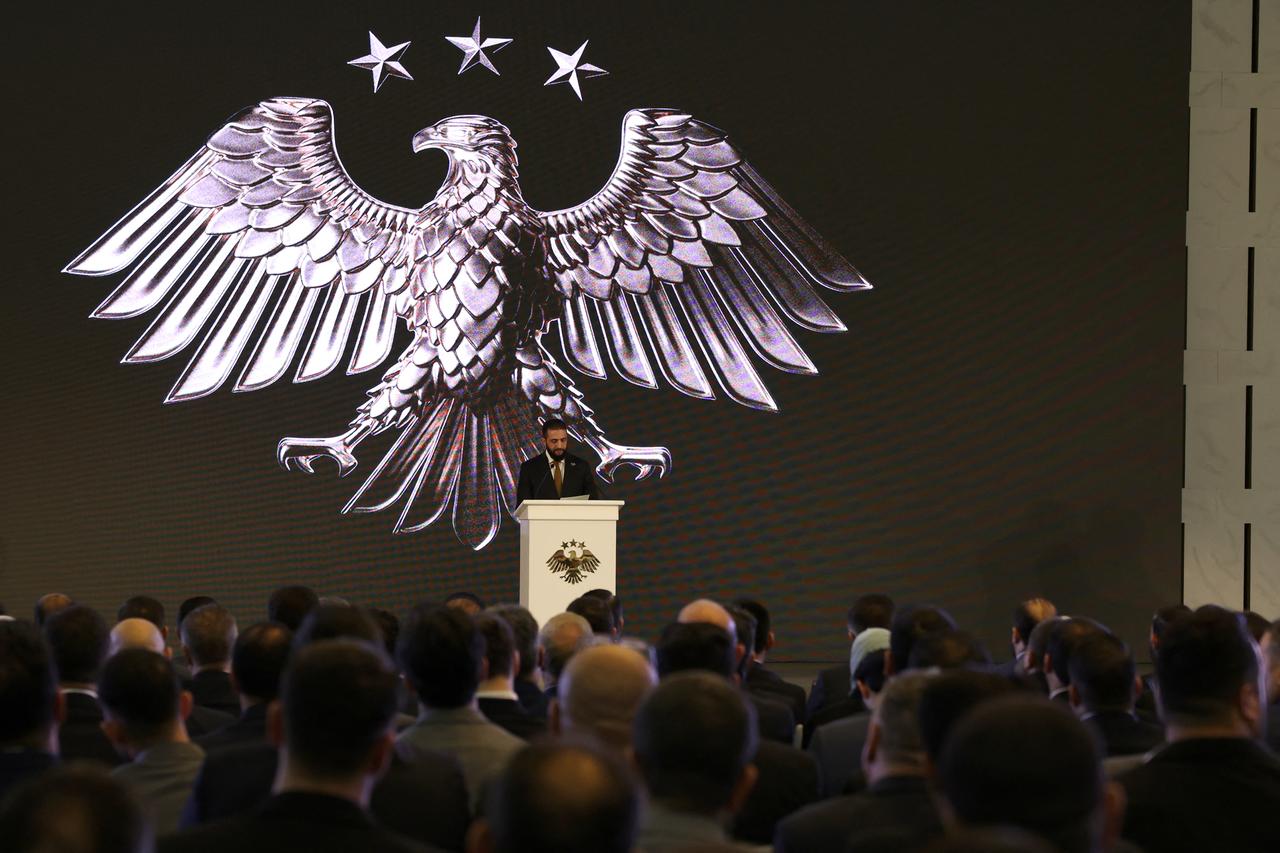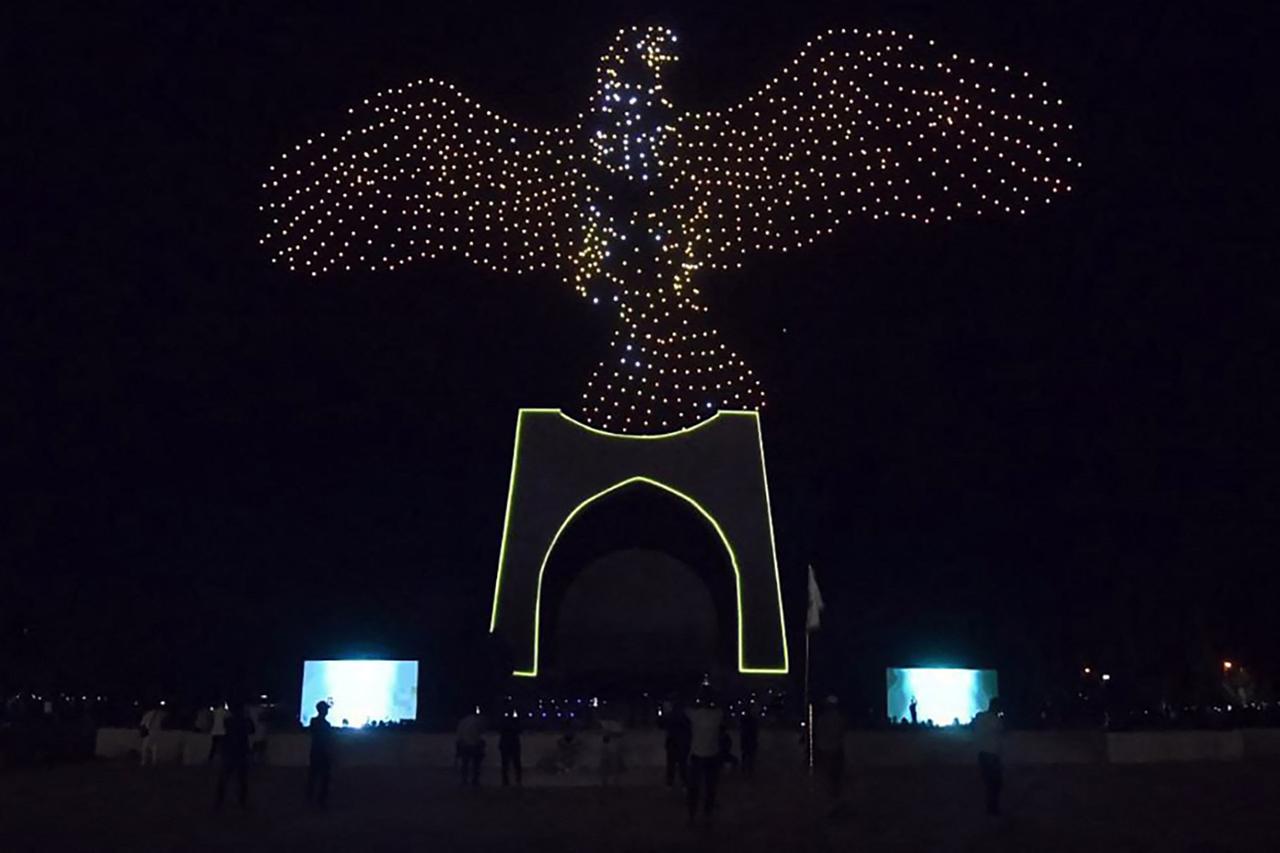
The Syrian Arab Republic officially launched its new national visual identity—from a new emblem to updated coins—on Thursday evening during a ceremony held at the Presidential Palace in Damascus.
The event was attended by President Ahmed al-Sharaa and several senior government officials. Al-Sharaa described the new emblem as a reflection of “a united, indivisible Syria,” according to the state-run Syrian Arab News Agency (SANA).
The new identity includes updated visual symbols, new colors, and fonts, and will be gradually implemented across official documents, government institutions, passports, and eventually on the national currency in later phases.
“Today’s celebration marks the identity of Syria and its people in their new historic phase,” al-Sharaa said, emphasizing that the new identity “draws its features from this bird of prey, the golden eagle, which symbolizes strength, determination, mastery, and innovation.”
Al-Sharaa added that the identity reflects “a united Syria that rejects fragmentation and division, where cultural and ethnic diversity is a source of enrichment, not conflict or discord.” He explained that the new identity “aims to build the Syrian citizen and restore the identity of a nation that has experienced centuries of migration in search of security and a future, reclaiming its dignity, confidence, and rightful position both at home and abroad.”
President al-Sharaa gifted luxurious green velvet boxes containing the golden eagle emblem, a green T-shirt, a cap, and a pencil, to those attending the ceremony.

The first appearance of the eagle symbol dates back to the Battle of Thaniyat al-Uqab and the conquest of the Levant by Khalid ibn al-Walid, a famous companion of the Prophet Muhammad.
The eagle also served as the emblem of the Syrian Arab Republic, bearing the signature of visual artist Khaled al-Asali in 1945. The symbol has been chosen by the new Syrian government to connect with the nation's history and reaffirm authenticity.
Also it differentiates Syria from other Arab countries, such as the Arab Republic of Egypt which uses the “Saladin Eagle,” while maintaining the characteristic of a “bird of prey” that has been a go-to symbol for modern Arab republics in the post-colonial era.

The three stars in the new emblem project outwards from the eagle—as opposed to aligned in a straight line like in the old Syrian flag—symbolizing the liberation of the people, their empowerment, and representing their ambition to ascend in their historic role.
The eagle’s wings consist of 14 feathers, representing Syria’s governorates, while the five tail feathers symbolize the country’s major geographic regions—northern, eastern, western, southern, and central—reflecting the unity and integration of the national territory.
The wings are designed in a “ready and alert” posture, neither aggressive nor closed.

The three talons represent the land, naval, and air forces, signifying balanced military readiness.
The Syrian government emphasized that the new emblem symbolizes historical continuity, a renewed political trajectory, the empowerment of the people, the role of the state as guardian, and geographic integration.
It comes as part of a new political path following the fall of the previous regime, aiming to reinforce the state’s symbolism and stature both domestically and internationally, despite ongoing economic and political challenges.